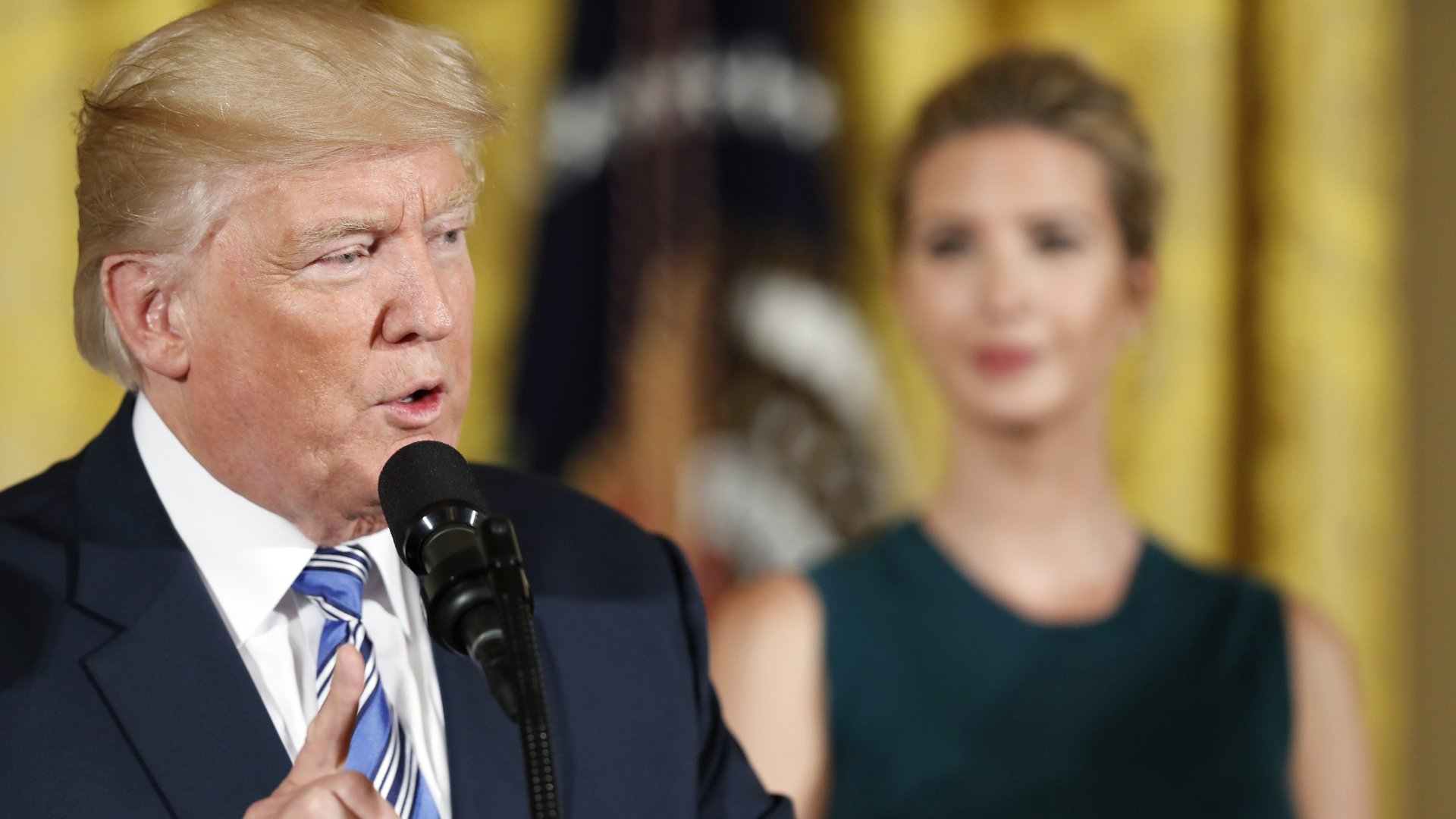An economist praises Trump’s “brilliant conclusion about life”
At a recent panel on the US economy at the Milken Institute Global Conference in Los Angeles, Fox Business Network host and presidential booster Maria Bartiromo touted first-quarter GDP growth before turning to panelist Aaron Klein, an economist at the Brookings Institute.


At a recent panel on the US economy at the Milken Institute Global Conference in Los Angeles, Fox Business Network host and presidential booster Maria Bartiromo touted first-quarter GDP growth before turning to panelist Aaron Klein, an economist at the Brookings Institute.
Klein, who served as deputy assistant Treasury secretary for economic policy during the Obama administration, opened his remarks with unexpected praise for Donald Trump.
“President Trump came to a brilliant conclusion about life,” Klein said, “which is—the best thing you can do is inherit well.”
Best? Who can say. But it’s true that being given a large amount of money is very helpful if you want to be rich, and that Trump’s own fortune was boosted this way. A New York Times investigation last year found that Trump received around $413 million from his father’s real estate fortune, most of it transferred tax-free from father to son in shady and sometimes outright fraudulent transactions.
Had the senior Trump simply left the money as a gift in his will, it would have been taxed at 55%, the estate tax rate at the time. Today, only estates worth more than $11.4 million are taxed (double that for a married couple), at a rate of 40%.
“We want to make it easier for loving families to pass on their life’s work to their children—it’d be nice, it’d be very nice,” Trump said in 2017, during an unsuccessful push to repeal the tax entirely. Instead, a tax overhaul by the Republican-led Congress doubled the threshold at which the tax kicks in.
Like many critics of the estate tax, Klein argued in Los Angeles that it was another way for privilege to pass unchallenged from one generation to a next—a seamless transfer of advantages echoed in the college admission scandal and mounting outrage over income inequality.
“When you talk about what’s bubbling up, why are people so angry, it’s because the feeling is that the system isn’t working for them, that it’s not fair and equitable,” Klein said. “People want a fair shot at opportunity and prosperity. But when they see perpetual wealth accumulation with zero—you can pay zero in taxes as a company and transfer that money at various levels infinitely without paying your fair share—it gets people pretty upset.”
Not everyone seems to mind. A recent survey found that 33% of Americans support repealing the estate tax, which applies to just 2,000 people a year. A Republican-introduced bill currently in the House would do just that.